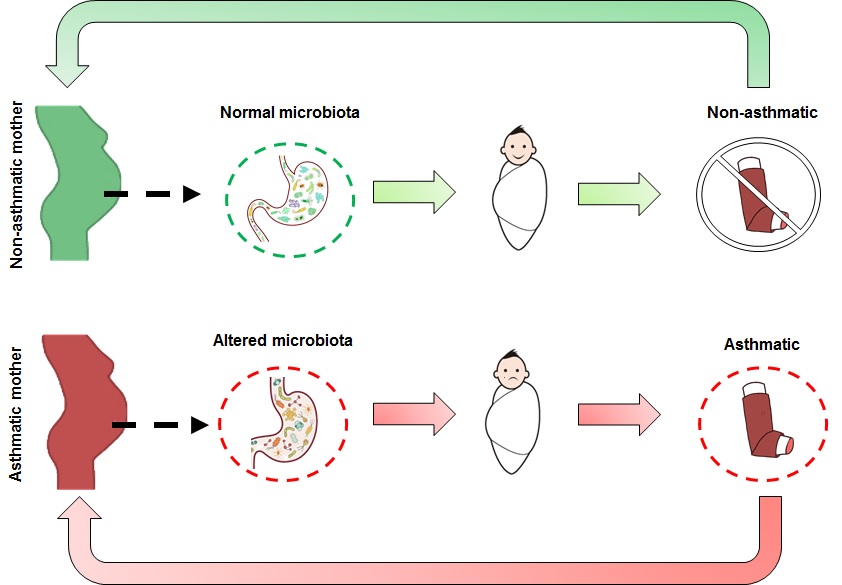By Rachele Invernizzi
The human microbiome is composed of approximately 100 trillion bacteria and our intestinal tract is where the majority of these bacteria reside. The gut microbiota and their metabolic products exist in a dynamic state, which varies throughout the lifetime of the individual. This is particularly true during the first 18 months of life as the gastrointestinal tract becomes colonised and communities of bacteria form in various niches throughout the gut. There is a growing appreciation that the gut microbiota plays a vital role in host physiology as well as in the pathophysiology of several disorders, including asthma.
The primary objective of this study (1) was to phenotype the gut colonisation patterns during the first year of life and the associations of these patterns with the later risk of asthma in a prospective cohort of 700 children. The authors looked at the abundance and diversity of the bacterial species in the children’s guts and how they changed from the first week to the first year of life. They found that the state of the gut microbiome is associated with diagnosis of asthma at age 5, but fascinatingly these observations are only apparent in children born to asthmatic mothers.
Taken together these findings highlight the importance of the maturation of the gut microbiome during the first year of life in the development of asthma, especially in children born to asthmatic mothers. This raises important questions about the nature of disease inheritance. Are children of asthmatic parents more susceptible solely as a result of genetics, or also because of imbalances in microbiota they inherit from their mothers? Would correcting this reduce the risk of developing asthma? And how do these resident gut microbes influence events in the lungs?
- Stokholm et al, Maturation of the gut microbiome and the risk of asthma in childhood. Nature Communications. (2018). 9:141. https://www.nature.com/articles/s41467-017-02573-2